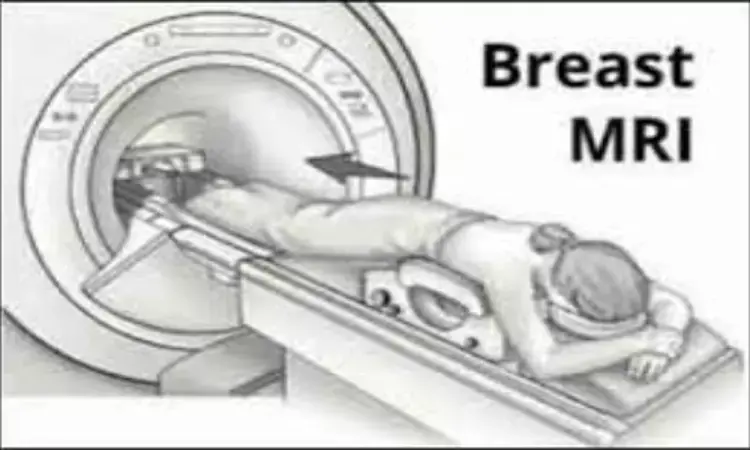- Home
- Medical news & Guidelines
- Anesthesiology
- Cardiology and CTVS
- Critical Care
- Dentistry
- Dermatology
- Diabetes and Endocrinology
- ENT
- Gastroenterology
- Medicine
- Nephrology
- Neurology
- Obstretics-Gynaecology
- Oncology
- Ophthalmology
- Orthopaedics
- Pediatrics-Neonatology
- Psychiatry
- Pulmonology
- Radiology
- Surgery
- Urology
- Laboratory Medicine
- Diet
- Nursing
- Paramedical
- Physiotherapy
- Health news
- Fact Check
- Bone Health Fact Check
- Brain Health Fact Check
- Cancer Related Fact Check
- Child Care Fact Check
- Dental and oral health fact check
- Diabetes and metabolic health fact check
- Diet and Nutrition Fact Check
- Eye and ENT Care Fact Check
- Fitness fact check
- Gut health fact check
- Heart health fact check
- Kidney health fact check
- Medical education fact check
- Men's health fact check
- Respiratory fact check
- Skin and hair care fact check
- Vaccine and Immunization fact check
- Women's health fact check
- AYUSH
- State News
- Andaman and Nicobar Islands
- Andhra Pradesh
- Arunachal Pradesh
- Assam
- Bihar
- Chandigarh
- Chattisgarh
- Dadra and Nagar Haveli
- Daman and Diu
- Delhi
- Goa
- Gujarat
- Haryana
- Himachal Pradesh
- Jammu & Kashmir
- Jharkhand
- Karnataka
- Kerala
- Ladakh
- Lakshadweep
- Madhya Pradesh
- Maharashtra
- Manipur
- Meghalaya
- Mizoram
- Nagaland
- Odisha
- Puducherry
- Punjab
- Rajasthan
- Sikkim
- Tamil Nadu
- Telangana
- Tripura
- Uttar Pradesh
- Uttrakhand
- West Bengal
- Medical Education
- Industry
MRI improved breast cancer detection in women with thick breast

A new study published in Radiology suggests that the combined data revealed that, for women with thick breasts and negative mammography result, MRI was the best additional imaging modality.
The primary imaging technique for finding breast cancer is mammography, which has been linked to a decline in breast cancer-specific mortality. The use of digital mammography was linked to 14% higher rates of cancer diagnosis (CDRs). It is yet unknown whether an additional breast cancer screening method is most effective for women who have thick breasts and a negative mammography but are at medium or intermediate risk for breast cancer. Therefore, Heba Hussein and colleagues conducted this systematic review and meta-analysis evaluating clinical outcomes of the most popular supplementary screening modalities in patients with thick breasts and mammography with negative results in women at average risk or intermediate risk for breast cancer.
Up until March 12, 2020, a thorough search for Randomized Controlled Trials and Prospective Observational Studies was carried out in Medline, Epub Ahead of Print and In-Process and Other Non-Indexed Citations, Cochrane Central Register of Controlled Trials, Embase Classic and Embase, and Cochrane Database of Systematic Reviews. In non-high-risk patients with dense breasts and mammography that was cancer-free, the incremental cancer detection rate (CDR), positive predictive value of recall (PPV1), positive predictive value of performed biopsies (PPV3), and interval CDRs of additional imaging modalities, digital breast tomosynthesis, handheld US, automated breast US, and MRI were examined. Data metrics and bias risk were evaluated. Both two-sided metaregression and random-effects meta-analysis were used to compare the metrics of each imaging modality.
The key findings of this study were:
Included were 22 studies that reported 261 233 people who had undergone screening.
Using these additional modalities, 541 tumors missed by mammography were found in 132 166 screened women with thick breasts who also matched the criteria for inclusion.
Metaregression models demonstrated that invasive CDR and in situ disease were inferior to MRI when used as additional modalities in CDR.
There were no changes between PPV1 and PPV3.
The small number of studies made it impossible to evaluate interval cancer measures.
No significant statistical difference in any parameter was found between the remaining imaging modalities, MRI excluded.
Reference:
Hussein, H., Abbas, E., Keshavarzi, S., Fazelzad, R., Bukhanov, K., Kulkarni, S., Au, F., Ghai, S., Alabousi, A., & Freitas, V. (2023). Supplemental Breast Cancer Screening in Women with Dense Breasts and Negative Mammography: A Systematic Review and Meta-Analysis. In Radiology. Radiological Society of North America (RSNA). https://doi.org/10.1148/radiol.221785
Neuroscience Masters graduate
Jacinthlyn Sylvia, a Neuroscience Master's graduate from Chennai has worked extensively in deciphering the neurobiology of cognition and motor control in aging. She also has spread-out exposure to Neurosurgery from her Bachelor’s. She is currently involved in active Neuro-Oncology research. She is an upcoming neuroscientist with a fiery passion for writing. Her news cover at Medical Dialogues feature recent discoveries and updates from the healthcare and biomedical research fields. She can be reached at editorial@medicaldialogues.in
Dr Kamal Kant Kohli-MBBS, DTCD- a chest specialist with more than 30 years of practice and a flair for writing clinical articles, Dr Kamal Kant Kohli joined Medical Dialogues as a Chief Editor of Medical News. Besides writing articles, as an editor, he proofreads and verifies all the medical content published on Medical Dialogues including those coming from journals, studies,medical conferences,guidelines etc. Email: drkohli@medicaldialogues.in. Contact no. 011-43720751


